
Feeling overwhelmed with your child’s recent autism diagnosis? Let’s take a deep breath and break it down together. Shift your perspective and tap into the power of understanding autism. Learn how to be your child’s best advocate and guide on their journey.
This post was written by Marra Robert, OTD, OTR/L, in May 2023 and contains affiliate links.
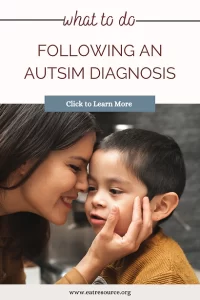
If you just got the news that your child was diagnosed with Autism Spectrum Disorder and are unsure what to do next, this is for you. If you are feeling overwhelmed, scared, helpless, and alone,
I hope to offer you some supportive advice. But before I get started, I need to be honest with you. I truly can’t imagine what you are going through because I’m not the parent of a child with autism.
However, I have my doctorate in occupational therapy, and I have spent many years in Early Intervention, supporting families through this process.
I’ve also had the privilege of treating many children with Autism and have grown very close with them and their families.
I hope to answer some of your questions and concerns from a clinical perspective about the autism diagnosis.
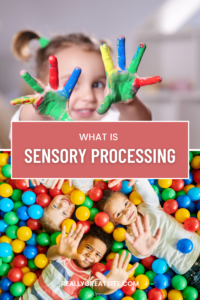
I absolutely loved working in Early Intervention services. It’s a nationwide program that provides therapy to children and their families who are experiencing developmental concerns or challenges.
I would evaluate children to see if they qualify for therapy services, but because I’m an OT, I could not diagnose a child with a developmental disorder.
I would often support families through the process of deciding to get a medical diagnostic evaluation, navigating the.process, and discussing and making sense of the results with them.
With many of the families, I was often the first healthcare professional and developmental specialist they spoke to after their child received an Autism diagnosis.
Since I was already coming to their house for therapy every week, they most often saw me before their pediatrician. I also had a close relationship with them and was in their home so it oftentimes was a personal and very raw conversation.
The first conversation I had with a family of a child who had just received an autism diagnosis was such an honor. I took this responsibility and what I told them more seriously than any other conversation I have ever had. I hope to share that with you.
First, I would allow the parents to share their feelings, and what they were going through and try to listen and validate their emotions. Anything you are feeling, or you may feel is completely reasonable and appropriate.
Anger, sadness, grief, frustration, numbness, and even denial is absolutely ok. I would do my best to support them in whatever place they were at.
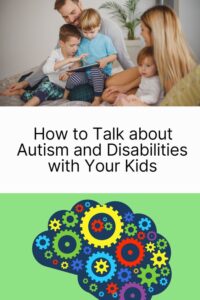
YOUR CHILD HAS NOT CHANGED; WHY AN AUTISM DIAGNOSIS?
One of the first things I would say to you would be that nothing about your child has changed. This may be frustrating to hear because you might be feeling as if your whole world was just turned upside down.
You have every right to feel that way. But nothing about your child has changed. Your child is still the wonderful little being they were before the diagnosis and will continue to grow and learn with all the same potential and dreams you had for them.
WHAT IS A DIAGNOSIS? WHAT DOES AN AUTISM DIAGNOSIS MEAN?
A diagnosis itself is really just a word and a label and doesn’t have much power in itself. It doesn’t define anyone, it doesn’t tell you anything about a person, and it definitely doesn’t predict the future or tell you what someone is capable of.
No one can do that! That being said, I think it is smart to go through the diagnostic evaluation process and that an Autism diagnosis can be helpful.
Unfortunately, we live in a world where insurance companies and other policies run our healthcare system. Every piece of me wishes we could just get rid of the diagnoses and the labels and that every child would receive the medical attention, therapy services, and accommodations that they need at that time, regardless of their diagnosis.
Sadly, that’s not how things work, and the truth is that an Autism diagnosis can open more doors for your child and be a tool for you to help your child grow.
Instead of thinking about it as a negative label, think about the diagnosis as a card you have that you can play to advocate for your child so that they can get the therapy services and accommodations they may need. Also, remember it is private medical information and because of HIPPA you have the right to decide when and to whom you disclose that information.
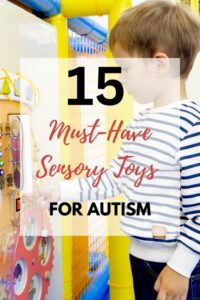
YOU ARE THE BOSS AND YOUR CHILD’S ADVOCATE!
I want to empower you as the parent and let you know that you are the boss and the decision-maker for what happens next. No one knows your child better than you and only you know what’s best for your child and your family.
I’m going to say that again because I use to tell the families I worked with this all of the time and believe it is so important to understand. No one knows your child better than you and only you know what’s best for your child and your family.
After your child receives an Autism diagnosis you will most likely be overwhelmed with everyone telling you what to do. Doctors, therapists, teachers, developmental specialists, family and friends, even the media and the very unreliable Google will all have their opinions and recommendations about what you should do.
But they are only opinions and recommendations. That’s it! You as the parent get to decide what to do and…. No one knows your child better than you and only you know what’s best for your child and your family.
I strongly recommend you follow your instincts and your gut. Take what serves you and your child and leave the rest.
HAVE A CLOSE SUPPORT SYSTEM AND KEEP IT SMALL.
Often we are flooded with information about what we need to do or should be doing. I suggest having a small group of people you trust, whom you can turn to for advice.
This may be your child’s therapist who knows your child well or a close friend who worked with children with autism, or another parent who’s been where you are now. Stay with that small group and ignore the comments and information from those who aren’t in your group.
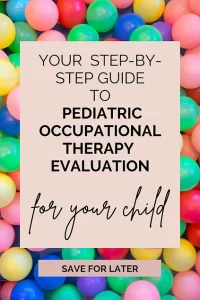
SO MUCH INFO!
As I mentioned before, we are bombarded by so much information these days, especially with the media and the internet. One thing that is really important to remember is that you do not need to know everything about Autism TODAY!
If your child is young, you don’t need to know how to help them navigate high school, or about dating, or independent living.
FOCUS ON NOW.
What would make life easier for you and your child in the next week or month? It’s all about baby steps. Where is your child at today?
Love them and accept them for where they are now, and focus on helping them achieve the next small step and that’s it. You have a whole lifetime to learn about Autism. Stay focused on what’s helpful for you and your family in the present.
If you do want to learn more, that’s great. There are so many resources out there and some are great and some not so much.
Every child with Autism is different and every family is different so take what serves you and leave the rest for someone else. Below are some recommendations that the families I’ve worked with have found helpful
RECOMMENDED BOOKS ABOUT AUTISM DIAGNOSIS
1. ENGAGING AUTISM BY STANLY GREENPAN
2. The Out of Sync Child by Carol Stock Kranowitz and Lucy Jane Miller
3. The reason I jump by Naoki Higashida
4. Unmasking Autism by Devon Price PhD
5. Ten Things Every Child with Autism Wishes You Knew, by Ellen Notbohm and Veronica Zysk
6. Thinking in Pictures: My Life with Autism by Temple Grandin,
ADDITIONAL RESOURCES
take care of yourself
If you are still here with me, or if you are on this blog post at all, I can confidently say you are doing more than enough for your child.
All you truly need to do is love and accept them for who they are today and I promise you will figure out everything else when you need to. Just trust yourself.
I’d love to hear your thoughts and questions. Please leave a comment below.
